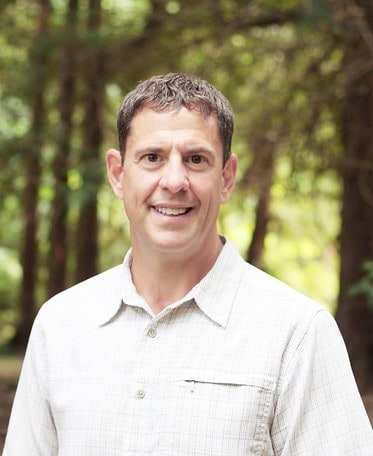In conversation with Bruce Ravelli: What moving online has taught him about teaching and the true value of higher education

As a Canadian professor and sociologist, Bruce Ravelli has devoted much of his career to thinking about the student learning experience and how social events influence people. When COVID-19 disrupted higher education halfway into the spring 2020 semester, educators and students scrambled to adjust to a new online learning reality.
Professor Ravelli sat down to reflect on what he’s learned through this experience, the true value of higher education, and important things to consider when moving online.
(These responses have been edited for brevity and clarity.)
What’s been most surprising about moving your class online?
When the university shut down in March, I remember feeling surprised at how quickly the discussion evolved to thinking about university only as a place where a bunch of information is conveyed from instructors to students. I think we missed that real opportunity to educate the public and our colleagues about what really happens at a university.
A lot of learning certainly occurs in classrooms, but it also occurs over a coffee or a chat in between classes. As teachers, our gift is to introduce concepts, ideas, and theories that students have never heard before. Often, those teachings inform the discussions students have at coffee shops, at bars, and with friends.
So, what surprised me was how many assumed that what we do can be simply packaged and distributed electronically when the pandemic first hit. I think the best thing we do as educators is have our students think about the world in a different way. I certainly don’t want to miss this opportunity to celebrate the very best things we do as teachers, and not lose sight of that in a post-COVID world.
“I think the best thing we do as educators is have our students think about the world in a different way. I certainly don’t want to lose sight of that in a post-COVID world.”
What advice would you give to others in your position?
I would ask you to consider two things:
1. Think about what you do well and what you might need help with. If you're a good lecturer, in the online world, maybe it’s best for you to record a video and present it. Maybe its a series of blog posts where you discuss different issues in the media, society, or theory to let students see the world as you see it.So, I would caution you to think critically on what technology you're going to use and why. You should only use technology that will make your teaching more effective and to compensate on areas you need support.
2. What do you want your students to achieve in your courses?
Think about what students’ lives must be like in this post-COVID world. They're probably taking 3-4 different courses online with 4-5 different instructors each having different sets of expectations. So, I'd ask you to be very reasonable in your expectations of students.
If you want them to learn a lot of concepts and theories, there are many supplementary materials provided for textbooks these days. They have online testing strategies to help you assess your students. They can provide links to YouTube videos, and more.
I would just caution any new person moving online to not rush into 50 different techniques and technologies, but really think about what you are good at, what you need some help with, and what you want your students to achieve. Be thoughtful, practical, methodical. And certainly have some compassion for all the students facing so many different demands in this post-COVID world.
“Be thoughtful, practical, methodical. And certainly have some compassion for all the students facing so many different demands in this post-COVID world.
What have you learned during this time?
What I learned came as a bit of a surprise. I always knew I liked teaching, but I was surprised by how much I missed the classroom.
I miss that feeling when you’re giving a great lecture—when the students are indicating that they’re learning something they’ve never thought about before. When you can make them laugh, when you can make them have that deep thoughtful moment. I miss students diligently working, diligently asking questions, meeting their friends in class. I miss all of those moments.
“I always knew I liked teaching, but I was surprised by how much I missed the classroom.”
Through a lot of social media conversations, I also learned how students want to learn from somebody they can trust, talking about things the person is an expert in. So, I cherish those moments thinking about teaching again. I am really gratified to know the important role that many of us play in our students lives when we get to show them things for the first time. So, it's not so much what I've learned about myself over the last six months, but how I've relearned being invigorated by my discipline, by the joy I have in teaching and meeting students.
“I am really gratified to know the important role that many of us play in our students. I've relearned being invigorated by my discipline, by the joy I have in teaching and meeting students.”
Watch the full conversation here:

Bruce Ravelli is an award winning teacher who has been inspiring and challenging students for over 25 years. His students often comment on his engaging lectures, passion for sociology and his commitment to high academic standards (his teaching evaluations are all available on his website).
Professor Ravelli has published articles and book chapters on Canadian culture, cross-national value differences and students’ anonymous evaluation of teaching. He has also edited a number of readers, website resources and is the co-author of a number of textbooks for Introductory Sociology, including “Revel for Exploring Sociology: A Canadian Perspective”.